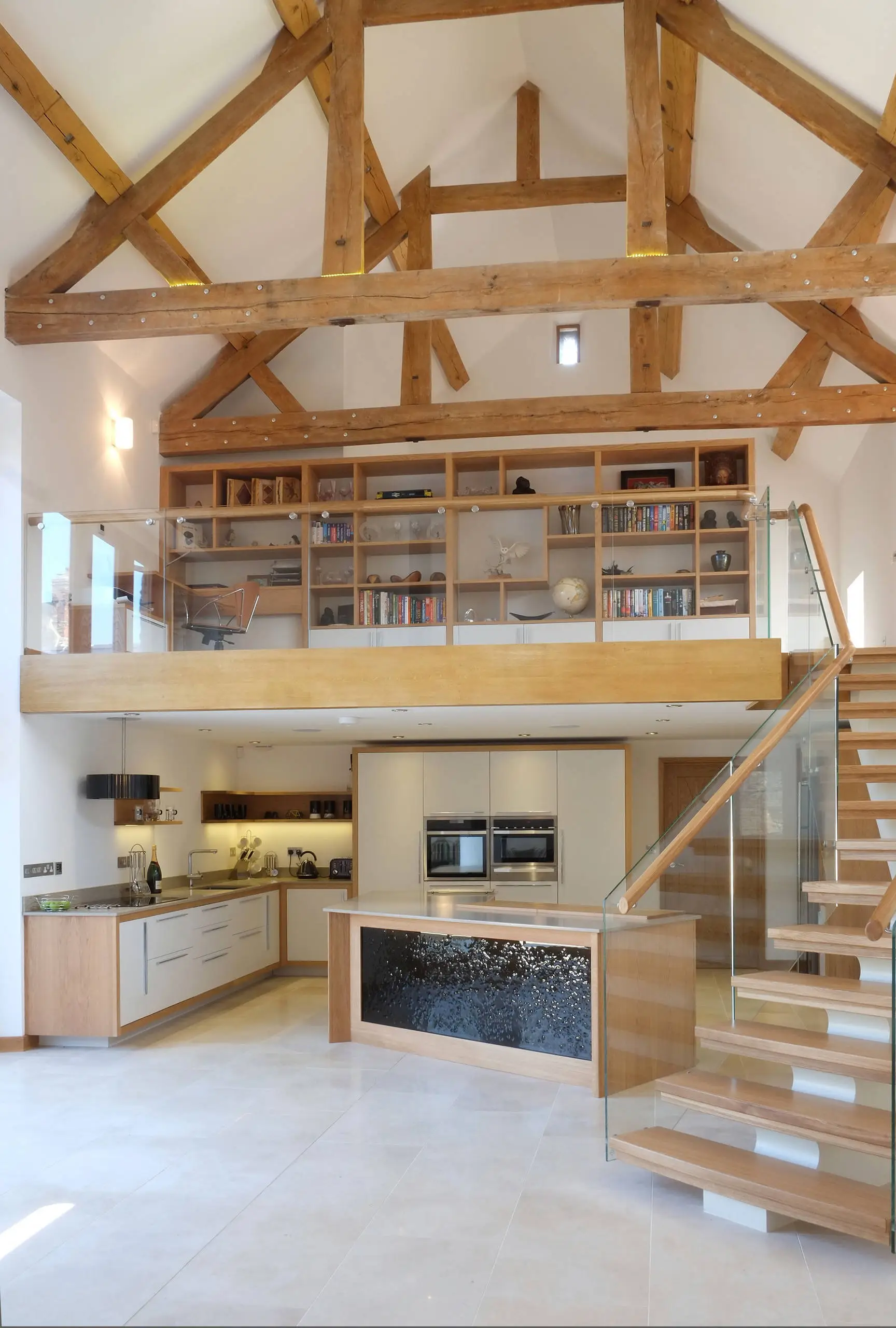Buckle up for a deep dive into the world of energy modeling for residential buildings, where we’ll peel back the layers and uncover the secrets of those mysterious open mezzanines. Join us as we delve into the ins and outs of capturing their unique thermal quirks and maximizing energy efficiency. From handling tricky air flows to accounting for those cozy sunlit nooks, we’ll arm you with the know-how to create spot-on energy models for these architectural marvels.
What is an Open Mezzanine Floor and How Does it Impact Energy Modeling?
An open mezzanine floor is like an indoor balcony, a loft area open to the space below. This design element can make your home feel larger and more open, but it also introduces unique challenges for energy modeling.
Here’s why:
- Thermal Stratification: Open mezzanines often experience uneven temperatures. Heat rises, making the mezzanine level warmer than the lower level.
- Thermal Bridges: The connections where the mezzanine meets walls or ceilings act as thermal bridges, allowing heat to escape in the winter and enter during the summer.
- Natural Lighting: On the plus side, mezzanines are excellent for maximizing natural light. This can significantly reduce the need for artificial lighting, which impacts energy consumption.
Accurate energy modeling must account for these factors to provide a realistic picture of a home’s energy performance.
Why is Accurate Modeling of Open Mezzanines Crucial for Residential Buildings?
Accurate modeling of open mezzanines is essential for creating comfortable, energy-efficient homes. Here’s how it makes a difference:
- Thermal Comfort: Understanding heat flow patterns allows for the design of effective ventilation systems, ensuring a comfortable temperature throughout the house.
- Energy Efficiency: Identifying and mitigating thermal bridges helps prevent heat loss, leading to lower energy bills and a smaller environmental footprint.
- Daylighting Optimization: Accurate modeling helps determine the best placement for windows and skylights, maximizing natural light and further reducing energy consumption.
By investing time in precise modeling, we create homes that are not only aesthetically pleasing but also environmentally responsible.
Exploring Different Approaches – How to Model Open Mezzanine Floors in Energy Modeling Software
Let’s explore the key techniques used to model open mezzanine floors accurately:
1. Thermal Zones:
- Divide the mezzanine and the main living space into separate thermal zones.
- Consider the height difference and airflow patterns when defining these zones.
- This helps the model understand the temperature variations within the space.
2. Thermal Bridge Identification:
- Carefully analyze the mezzanine’s structural connections to identify potential thermal bridges.
- Input data about the materials and geometry of these connections into the energy model.
- This allows accurate calculation of heat transfer through these areas.
3. Daylighting Consideration:
- Model the size, type, and orientation of windows and skylights on the mezzanine.
- Use advanced modeling software with daylighting analysis capabilities.
- This helps understand the impact of natural light on energy consumption for lighting.
4. Software Assistance:
- Utilize powerful energy modeling software like OpenStudio and PAT, specifically designed to handle the complexities of open mezzanines.
- These tools can simulate airflow, heat transfer, and daylighting with a high level of accuracy.
5. Reality Check and Expert Consultation:
- After creating the model, compare its predictions with real-world data from similar homes whenever possible.
- Don’t hesitate to consult with experienced energy modelers or architects to validate your model and get expert advice.
By following these steps, we can create energy models that accurately capture the unique characteristics of open mezzanine floors. This leads to better building designs, lower energy bills, and a more sustainable future. Explore our resources on industrial mezzanine floors, mezzanine flooring, mezzanine floor height, and mezzanine floor systems for more information on mezzanine design and implementation.
- Upgrade Your Table Setting: Best Salad Forks 2025 - June 26, 2025
- Sage Green Throw Pillows: Transform Your Home Decor - June 26, 2025
- Find the Perfect Sage Green Rug: A Buyer’s Guide - June 26, 2025










